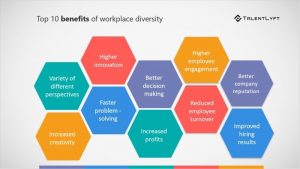There’s no easy answer for how to define search success, but columnist Andrew Ruegger believes you can reach your goals by asking the right questions.

One of the most frequent questions we get from our clients is, “What does winning in search look like?” Although it would be nice to have a universal response for every client, the problem is that the answer is vastly subjective.
An obvious answer would be that you have a good return on investment. In most cases, it’s difficult to calculate ROI unless you have a direct-to-sales shop, and even then, depending on the integrity of your analytics setup, you could misevaluate the campaign.
Instead of looking for an absolute, it’s best to apply a strategic method or decision tree-like framework to evaluate winning. Remember that search revolves around complicated, evolving algorithms which, because of their incredible usefulness, garner massive user loyalty. This, in turn, fuels an incredibly lucrative advertising arena that continues to expand.
What may be best for you today, may not be best for you tomorrow — “winning” today may not be “winning” tomorrow. So let’s explore how you should think about search and what kinds of questions you should be asking your agencies and search experts to help you reach your objectives and get closer to “winning.”
How To Think About Search
Agencies and other search experts can get you there, but often it’s unclear as to where “there” is. This is due to either a lack of understanding of search or a lack of a defined framework for what winning is. Keep this in mind when thinking about search:
You must make the strategic choice of what winning is for your company.
Options include being everywhere all the time; being lean, efficient, and conversion-centric; or focusing on brand building and storytelling; etc.
You must decide where you want to play, and how much you’re willing to invest.
A being-everywhere strategy is expensive — really expensive — so align your desired search presence with your primary business goals. This will then help define how to win where you want to play.
Then the fun begins and it’s time to pressure your experts to make sure your campaign continues to align with your goals and objectives. Remember, organic search is earned and is a long-term investment relative to other digital channels, while paid search is more immediate.
High-Level Questions To Ask Your Experts
You’re busy, and search may be only a part of your arsenal, but engaging your experts with the following questions will help ensure you’re “winning” and that your agency is executing toward your goals.
1. Am I currently present? What are my impressions; what is my impression share in the market; are we increasing?
2. What are my impressions getting me? How many clicks am I getting for my impressions (CTR); which campaigns are performing the best?
Not all campaigns will have high CTRs (avg. <2.0% in many cases) especially if you choose a full coverage type of account, so impressions may not necessarily be a very important metric for you. However, CTR can be an indication of how well your ad copy and landing page connect with consumers, or if you’re not bidding enough to be located in a premium position.
Therefore, appropriate follow-ups would be: Why is my CTR low? Is it budget, ad copy, or the sheer ambiguity of intent behind the query such as “castle?” Are consumers looking for the TV show of that name, information about castles, the definition, a recent news article, etc.?
3. Is it worth it? Is my business gaining value? Again, determining worth is subjective to the campaign. You want to be sure all user metrics like conversions, time on site, bounce rate, impression share, cost, clicks, user path, device usage, geo-location, scroll depth per page, and visits align with how winning has been defined.
Oftentimes this involves mixed media modeling to determine if search has a positive influence on ROI; this is complicated, but worth if it your investment is large enough. If yes, great — keep running the campaign and look for areas of expansion. If not ask the following:
4. What do I need to do to win? Sometimes it’s the change in the algorithm, or users don’t find your content as enjoyable as you thought they would; or sometimes other areas of your digital campaigns like PR, outreach, and social media aren’t executed in a holistic fashion, which is (at a high level) essential for search engines like Google to deem you relevant.
5. Is it worth the additional investment to get me there? Organic search is becoming harder to win in, and paid search CPCs (cost per clicks) are increasing as more companies enter the market.
With enough devotion, any website can still have first-place visibility organically; it just may require a near Wikipedia-sized investment of content to do so. Or if you’re a San Diego personal injury law firm, you may want to reconsider paying $343.13 per click in paid search.
If the investment makes sense, do it. If not, revaluate where it is worth paying for your business and repeat the process. Sometimes you’ll realize that only 5 percent of the campaign is worth running, or that paid search or organic search isn’t right for your business.
Your involvement is always essential as you determine what winning is, and it’s very unlikely that an agency selling you the service will say, “Oh yeah, you no longer need search.”
Some Examples Of How Your Experts Should Be Answering Your Questions
Personally, I love clients who ask me questions like, “What are the different questions consumers are asking on different devices throughout the day (hour of day), by geographical location?” It shows they care, and they see greater potential to leverage search data in order to answer different business questions.
Plus, I already have the capabilities built to answer that question in only a minute from dashboards created in Spotfire or Tableau. I warehouse all our clients’ data, from paid search to social conversations to rankings, and pull it all into dynamic visuals to easily provide accurate and data-driven advice.
The point being, we live in a data-rich age, with numerous SaaS, home-grown, and free solutions that your experts should be able to use to provide you with broad or granular analytics to ensure you are armed to the make the right decisions. If they can’t, find new experts.
The following are some examples of other questions to ask and how your experts could go about answering them.
Question: How is my organic search campaign going?

Answer: Great. Impressions, clicks, # of ranking keywords, and Rankings are all improving (A good Ranking trend is displayed inversely, as a lower ranking number is higher on the page, and therefore better). Agencies should be collecting and storing a lot of data including Google Webmaster Tools, which can easily display general progress of important search metrics not found in other tools.
A similar visual is equally as easy to create with paid data from Google AdWords.
Question: Is there a difference in how states are searching for my products? (Colored by Query Visits associated with product colors)

Answer: Yes, Georgia and Illinois have a considerably greater interest in your orange products than any other state; perhaps consider this discrepancy when designing for trade.
Search volume by city scaled to the population is also a worthwhile comparison, but long-tailed paid search queries can tell you a lot more about your consumers than Google Keyword Planner or Trends.
Question: Mobile is important — am I showing up? And how are consumers engaging?

Answer: Both your sites have improved in engagement over the prior year, but your mobile site efforts have dramatically improved and are aligned with search engine changes, with your CTR almost doubling.
Question: It’s great that I rank No. 1 organically and for paid search. I want to know if the first page of Google is a reflection of my brand’s market share, which is 80 percent. In other words, is my brand being discussed on 8 out of 10 of those listings for my keywords? If so, is it positive or not? If not, what can we do?
This was my favorite question this year. Once you define where you want to be, it’s just as important to know where you appear in search as where you’re not appearing.
For example, if you sell products on Amazon and other e-retailers, it’s not necessarily bad if Amazon has a greater search presence than your company since the site is designed to drive sales conversions.
Similarly, it’s not bad if a reviews website showcases your product or brand in a positive way; however, if the conversation is negative it’s worthwhile to work on improving your rankings and pursuing additional digital strategies for brand protection.
This question can be answered in two ways. One high-level example is displayed in the anonymized tree map that displays a hierarchy of projected visits. Projected visits are calculated just like SEMRush or SimilarWeb would.
By doing some scary math (multiplying industry CTRs times volume of keyword times position for each term the domain ranks, and aggregating the results) you can showcase what type of domains have the highest visibility and traffic for your “must win” terms:

However, this doesn’t solve for sentiment analysis or overall organic share of voice.
If you take ranking data from a provider like AuthorityLabs or STAT (using the top 10 rankings for all of your terms) and load them into a program like KNIME, you can solve more difficult search questions that really provide value to clients. KNIME is capable of doing just about everything. With KNIME, you can manipulate the data and run some textual analytics to really answer your brands’ questions.

The above workflow takes our list of must-win keywords and top 10 URLs for each work, looks at the website copy for all URLs, checks if our brand or competitors are mentioned, evaluates the context in which they’re mentioned, and produces a share-of-voice chart paired with sentimentality toward the brand/client:

The sentiment score in the above image is based on positive association being +1, undetermined or none as 0, and negative being -1.
Remember that there’s no universal way to define “winning in search.” It’s about you and your company objectives. There’s a lot more value in what search can provide than just accumulating traffic. You just have to be prepared to ask the right questions.
Search is essentially the largest free consumer panel ever to exist — it’s simply a matter of looking at the right data in the right way and acting on it.
Some opinions expressed in this article may be those of a guest author and not necessarily Marketing Land. Staff authors are listed here.
(Some images used under license from Shutterstock.com.)
Marketing Land – Internet Marketing News, Strategies & Tips
(248)








